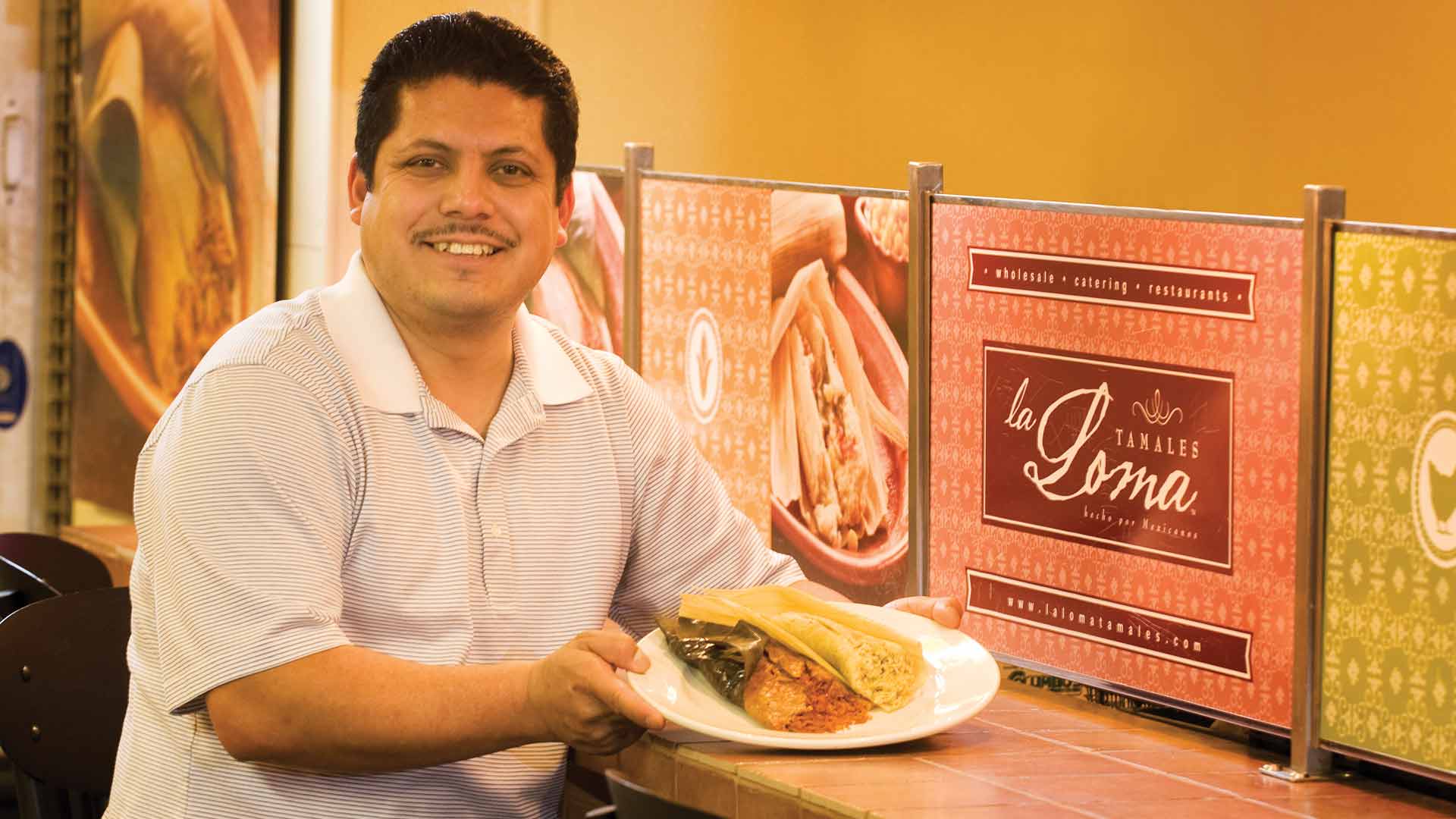Minneapolis, Minn. — In the late 1990s, Enrique and Noelia Garcia were making traditional Mexican tamales for friends. Today they make tamales for 250 groceries and food service outlets, and their four Twin Cities restaurants and catering business.
The Garcia’s business, La Loma Tamale, has 35 employees and annual sales of more than $1 million. The Mexican immigrants journey to becoming award-winning Minnesota entrepreneurs is inspiring. But it wasn’t easy.
Never ending honeymoon
Enrique and Noelia moved to Minnesota from Mexico two days after they married in 1993. It was January —not the season most warm-climate people move north.
“I joke with my wife that it’s the honeymoon that never ends,” Enrique says.
In 1998, the Garcias were both working at a Twin Cities hotel. For Christmas gifts, they made tamales — a traditional Mexican dish of corn-based dough filled with meat, cheese or vegetables, wrapped inside a cornhusk or banana-leaf wrapper,
and steamed.
Friends were so impressed they encouraged Enrique and Noelia to sell their tamales. Since both had good jobs, Enrique says they weren’t interested in opening a business. But the encouragement kept coming.
The breaking point
In 1999, the Garcias reconsidered and opened Cafeteria La Loma, a Mexican coffee shop that also serves traditional handmade tamales. The couple worked long hours, working full-time jobs and running the restaurant. They were getting tired, and were not making money.
The Garcias considered closing the restaurant, but instead contacted students from the University of St. Thomas who took their case on as a business project. The student group helped the Garcias figure out why they were losing money.
“They did a food-cost analysis, and we realized we were losing a penny on every tamale we sold,” Enrique says. The Garcias thought they would lose customers when they raised prices, but “people kept buying them and we started seeing money
come in.”
Navigating regulations
Several years later, La Loma Tamales began making tamales for local groceries. The Garcias found out they needed a wholesale license and were sent to regulators who “didn’t even know what a tamale was,” Enrique says.
State agriculture department staff connected the Garcias with AURI. Enrique and Noelia attended a meat-processing class at AURI’s meat lab in Marshall, developed a Hazard Analysis Critical Control Point food safety plan, found the right process for making their tamales, and received their wholesale license in 2005.
“We started working with La Loma Tamale more than five years ago,” says Charan Wadhawan, AURI scientist. “To see them grow from where they were then to where they are now is very good news.”
Besides navigating regulations, Wadhawan helped source ingredients and continues to provide nutritional analysis and information for La Loma’s nearly two-dozen products.
Enrique says he hopes to take La Loma Tamales to a nationwide audience in the next few years. But having gone through difficult times getting his business going, growth with be calculated, he says.
“There’s been a lot of learning. … There were times when it was really tough,” Garcia says. “We almost went through bankruptcy, but we learned to ask for help and we learned to do things right.”
Education and entrepreneurship
La Loma Tamales’ success isn’t accidental, nor is it unnoticed.
The company has received several awards, including 2010 Minority Business of the Year from Finance & Commerce’s Minnesotans on the Move awards.
Noelia Garcia received the 2009 Entrepreneur of the Year award from the National Association for Community College Entrepreneurship. She is a student at Dakota County Technical College.
Noelia and Enrique encouraged the technical college’s leadership to promote programs to the Hispanic community. “A lot of Hispanic people don’t go to college,” Enrique says.
Enrique has also served on the board of the Latino Economic Development Center, which supports business opportunities for Hispanics in Minneapolis.
The Garcias want their business expansion to give opportunities to others.They mentor employees who could one day build their own dreams.

